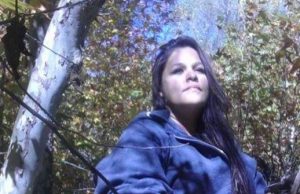The Visits: A Love Note for Brothers Inside
The 5 ½ hour drive to Hunlock Creek, PA is always filled with conflicting emotions. I’m excited about seeing my brother, but at the same time, I dread the visit because of the overwhelming guilt I feel when I leave.
Visiting a loved one in prison never gets any easier, even after doing it for more than 15 years. For me, having to leave Rodney behind to spend the rest of his days and nights behind bars in a cold, cinderblock cell while I go home to a nice, warm house leaves a sometimes unbearable weight on my heart. And while I know it’s not my fault that he’s serving a life sentence for murder, I can’t help but feel it’s unfair for me to have my freedom while someone I love has to suffer. In many ways, I feel just as imprisoned as he does.
But in many regards, I see my brother just about every day. Every time I’m in court covering a case and I see a young black man standing before the judge in an orange jumpsuit with his hands and feet shackled, I think about my brother. When I look around the courtroom and see a mother crying for her son, I remember the night about 20 years ago when I held my mother as she sat on the edge of her bed crying like a baby the first time my brother was sent to prison. Or when I see a woman holding a young child as she watches the judge sentence her boyfriend or husband to prison, I think about the two daughters Rodney has to watch grow up in pictures.
Every time I look at a picture of Rodney, I think about the day my mother called me at school to tell me he had been sentenced to life in prison. I cried uncontrollable tears, because I couldn’t imagine ever seeing my brother again. He had just been at my high school graduation. I remember thinking to myself, “How could this be happening?” I tried to console myself by saying, “Well, at least he’s still alive and wasn’t sentenced to death row,” but that wasn’t much comfort then, and it isn’t now.
Rodney, who is nine years older than me, was always my protector when we were growing up in Philadelphia. He was the one who beat up the boys who picked on me. (Well, actually I did a good job of roughing up the boys myself, but if I couldn’t handle the big ones, Rodney stepped in.) And when I stopped beating up the boys and started dating them, he was the one who taught me the lies boys told to get what they want. Rodney was my buddy, my fellow rebel in the family, which is why it kills me to know that I can’t protect him now and give him what he yearns the most—a life outside of prison. Several attempts at getting an appeal on his case or a new trial have been rejected, and although my family hasn’t given up hope, it gets harder for us to be optimistic as each year passes.
So once again, here I am crossing the big, silver iron bridge at the entrance of the State Correctional Institution Retreat to sit with my brother for another hour-long visit or longer depending on how good of a mood the guard is in. Rodney will give me a big hug, lifting me off my feet, then we’ll sit and chat over microwave popcorn and sodas—Mountain Dew is his favorite. I’ll fill him in on my life and what’s happening on the “outside,” and he’ll tell me about his job in the laundry room, how he’s saving his money so he can buy gifts for his daughters Ashley and LaKeeva. He’ll tell me about the latest letters he got from the girls and how he wishes he could be there for them more. We won’t spend our short time together crying and wishing things were different, even if we are inside. Instead, we laugh and reminisce about the days growing up, like the time when I fed his goldfish too much and they died, and my mother had to keep Rodney from beating me up.
Then the guard will announce, “Willingham, five more minutes.” We’ll sigh and prepare for the dreaded good-bye hug. But we still don’t cry. We just swap “I love you’s” and “See you next time’s” and go our separate ways. And when I get to my car, I cry—just as Rodney does when he gets to his cell—wipe my eyes, and drive back over the silver iron bridge, already dreading the next visit.
Author’s Postscript: I wrote this essay in 2004, when I was a reporter for the Albany (NY) Times Union. My brother Rodney is now 21 years into his life sentence and a grandfather of two boys. My family is still working on Rodney’s release.
_________________________________________________________
 Breea C. Willingham is a scholar, former journalist, researcher and writer. She is currently a doctoral candidate in American Studies at the University at Buffalo and a dissertation fellow at SUNY College at Oneonta. Her dissertation, entitled “Transforming Spaces: The Experiences of Women Teaching in Women’s Prisons,” analyzes how female instructors struggle to navigate the politics of teaching in women’s prisons and jails and transform classrooms into empowering learning spaces. Breea worked as a reporter for 10 years for newspapers in the Carolinas and Upstate New York before entering academia. She taught in the journalism school at St. Bonaventure University for six years where she taught courses in news writing, race, class, and gender in the media, and prison writing. Breea also taught a writing workshop in a New York State women’s prison and now teaches sociology at SUNY Oneonta.
Breea C. Willingham is a scholar, former journalist, researcher and writer. She is currently a doctoral candidate in American Studies at the University at Buffalo and a dissertation fellow at SUNY College at Oneonta. Her dissertation, entitled “Transforming Spaces: The Experiences of Women Teaching in Women’s Prisons,” analyzes how female instructors struggle to navigate the politics of teaching in women’s prisons and jails and transform classrooms into empowering learning spaces. Breea worked as a reporter for 10 years for newspapers in the Carolinas and Upstate New York before entering academia. She taught in the journalism school at St. Bonaventure University for six years where she taught courses in news writing, race, class, and gender in the media, and prison writing. Breea also taught a writing workshop in a New York State women’s prison and now teaches sociology at SUNY Oneonta.





16 Comments